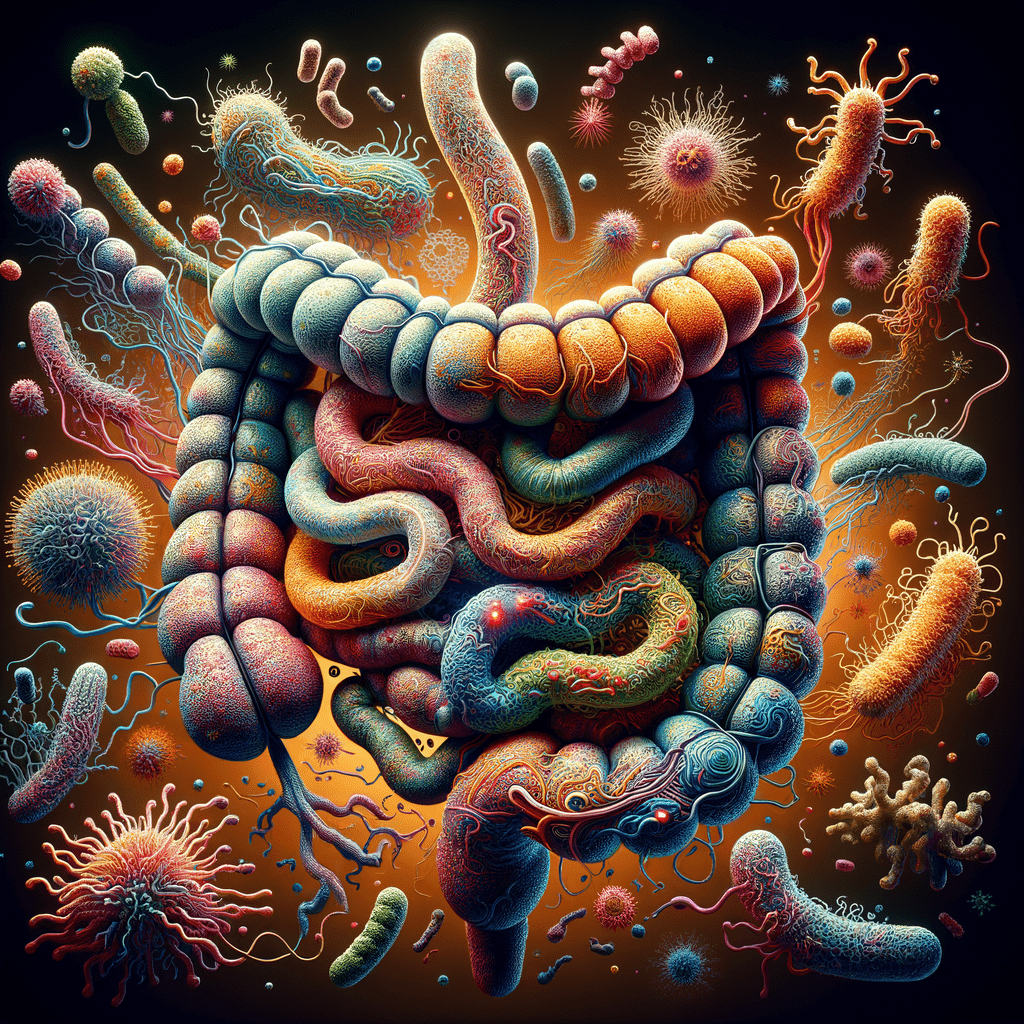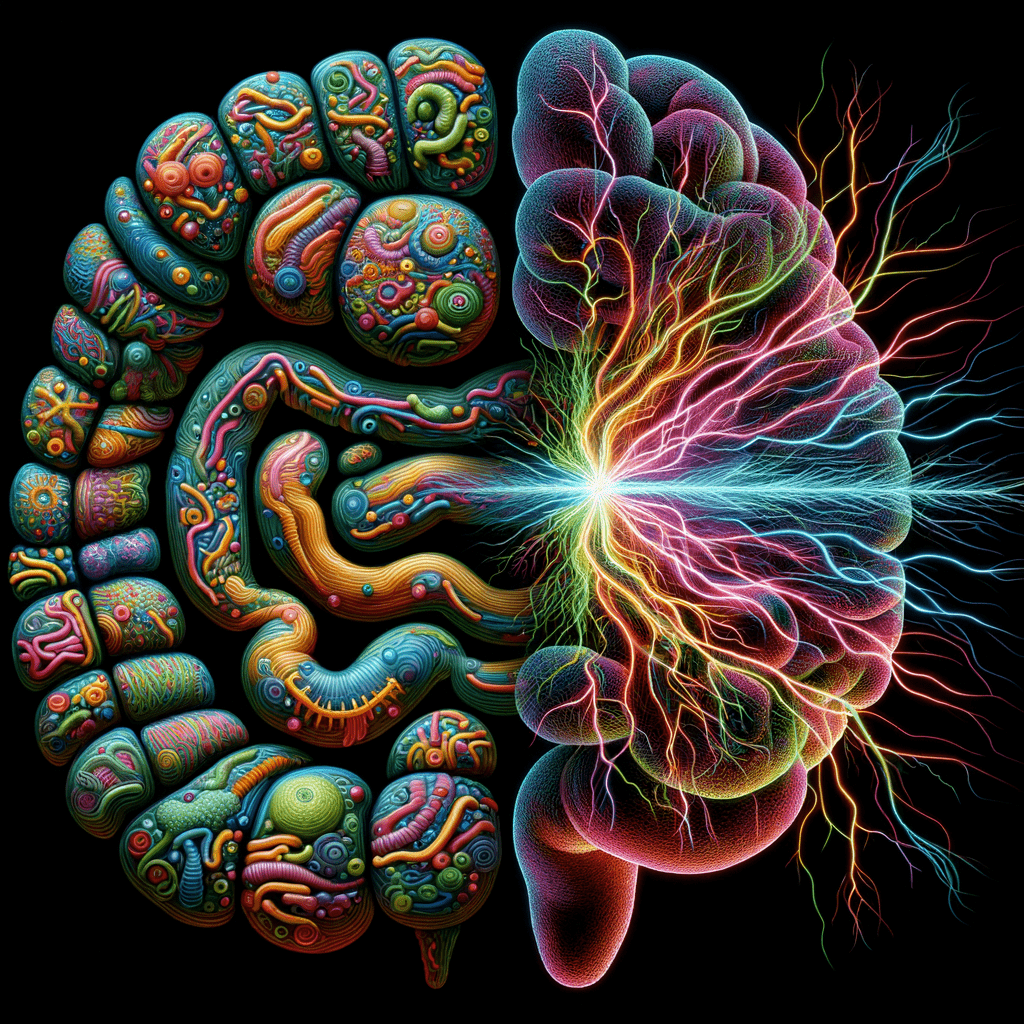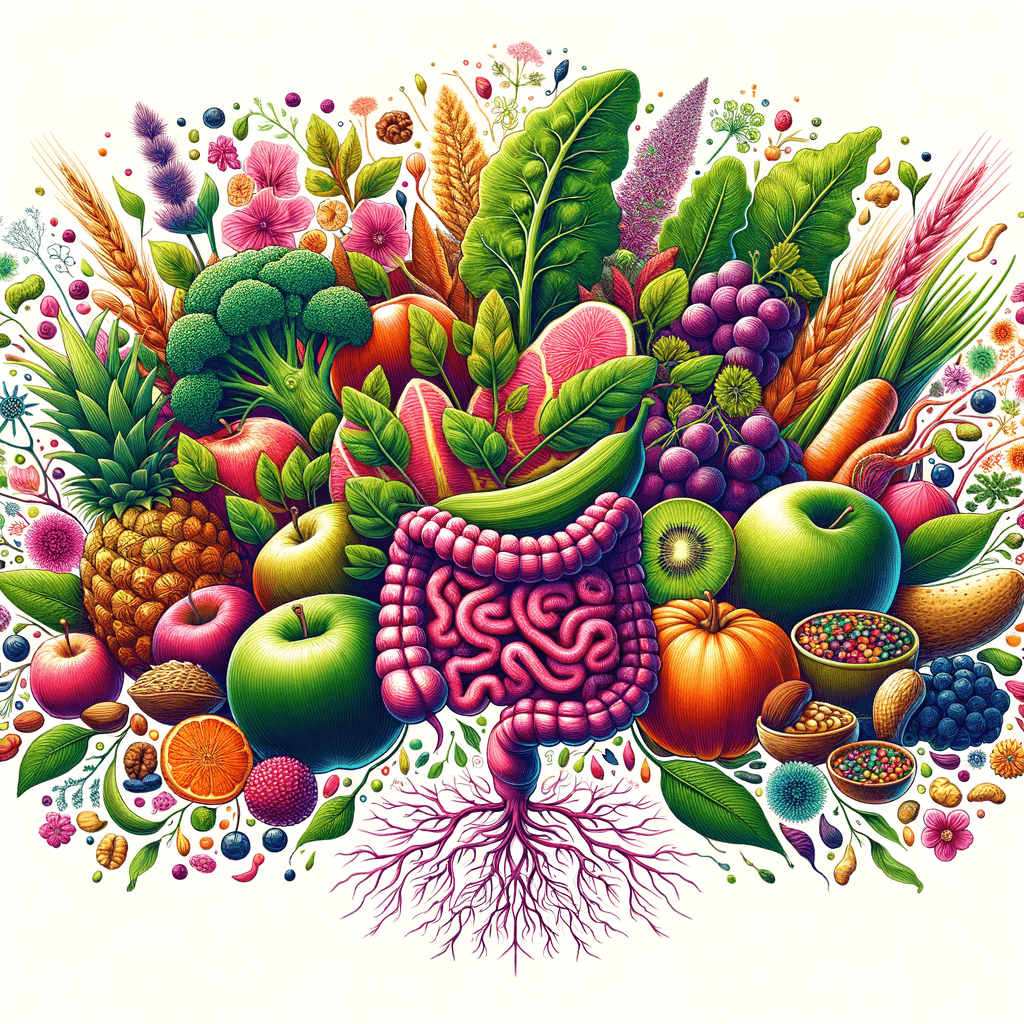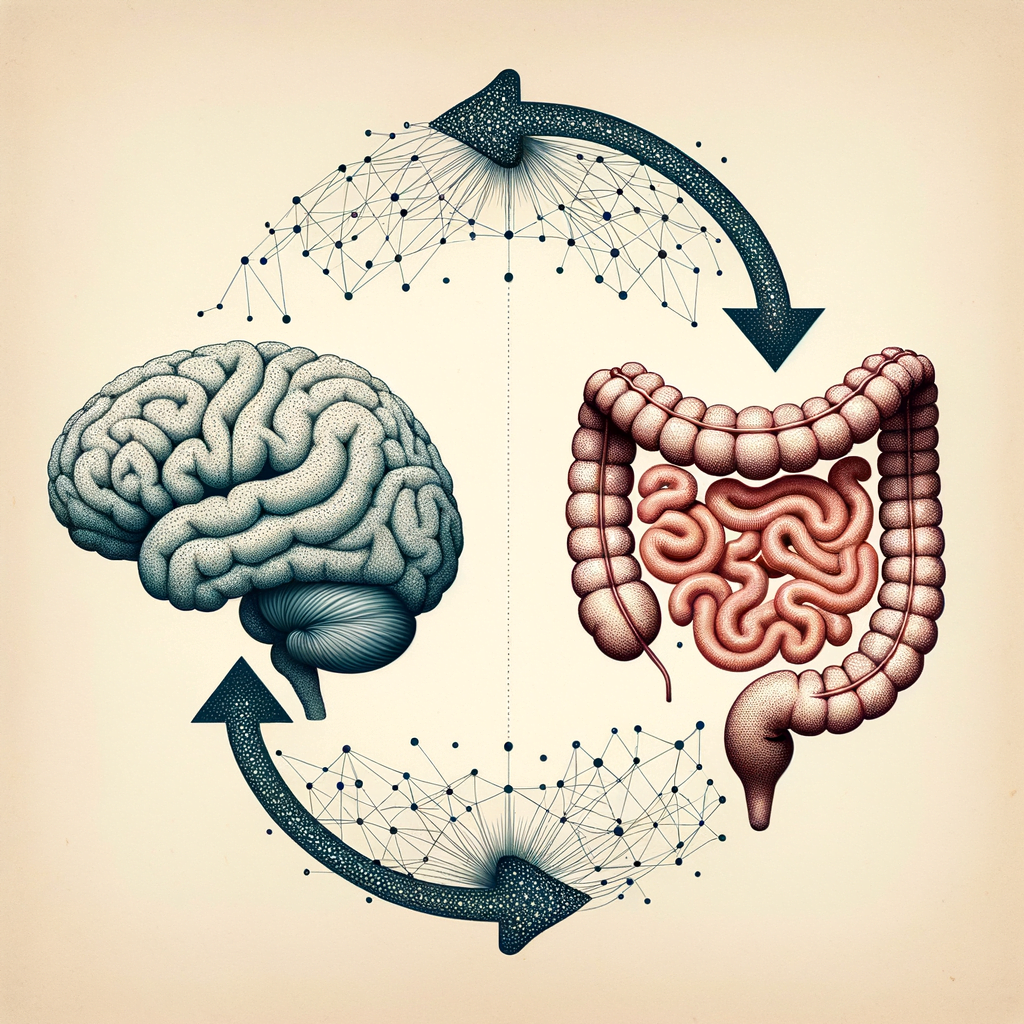The Hidden Universe Inside Us
The gut microbiome is a hot topic these days, but its connection to the brain and mental health was often overlooked in the past. As a fervent supporter of holistic healing, I’ve discussed anxiety from a personal perspective before. Now, I believe it’s highly relevant to dive deeper into the gut microbiome, as scientific research has revealed its deep interconnection with our mental wellbeing.
Let’s explore this fascinating topic and give it the importance it deserves. Understanding the power of the gut microbiome may help you view bacteria in a new light and pay closer attention to the key meals that should be part of your diet to support their thriving. After all, our content is all about empowering you with knowledge and freedom – the freedom that comes from truly understanding yourself and making informed choices, even when the conventional route may not reveal the answers.
The Genomic Powerhouse Within
We often talk about “gut feelings,” but what if our gut is trying to tell us something much deeper, something that directly impacts our mental well-being? Cutting-edge science is revealing a fascinating and intricate connection between the trillions of bacteria residing in our gut – our gut microbiome – and the very essence of our mental health.

Consider this: while we inherit roughly 23,000 genes from our parents, the bacteria in our gut contribute a staggering 2 million to 20 million bacterial genes to our overall makeup. This hidden universe of genetic information, largely overlooked until recently, is now taking center stage in mental health research.
These bacterial genes aren’t just along for the ride. They’re actively producing substances that interact with our bodies, influencing everything from our immune system to our brain chemistry. And one of their most important roles? Helping us break down fiber.
The Gut-Brain Connection
You see, we humans lack the enzymes to digest fiber on our own. It’s the beneficial bacteria in our gut that do the heavy lifting, fermenting fiber and producing those crucial short-chain fatty acids we keep hearing about. These act as chemical messengers, traveling through our bloodstream to the brain, where they influence mood, stress response, and even the formation of new brain cells.
The composition of our gut microbiome is greatly influenced by how we enter the world. Babies born vaginally are exposed to a diverse array of microbes from their mother’s birth canal, setting the stage for a more varied and resilient gut flora. In contrast, babies delivered via C-section miss out on this critical exposure and tend to have less diverse gut bacteria in their early life.

This difference in microbial colonization has been linked to a higher risk of developing certain health issues, including allergies, asthma, and even mental health conditions like anxiety and depression. Researchers believe that these early gut microbiome imbalances can have lasting impacts on immune function, inflammation, and the gut-brain axis.
Twins and the Gut-Brain Secrets
To unravel this complex relationship, scientists at the renowned TwinsUK project turned to the unique bond between twins. They studied the gut microbiome of identical and fraternal twins, some with and some without mental health conditions like depression and anxiety.
Their findings, published in Scientific Reports, were groundbreaking. Identical twins, sharing 100% of their DNA, had remarkably similar gut microbiomes, even more so than fraternal twins who share only about 50% of their genes. This points to a strong genetic influence on the composition of our gut’s microscopic world.
But the study went further, analyzing the specific types of bacteria present in those with and without mental health struggles. They discovered a potential link between the abundance of a particular bacteria genus called Parabacteroides and the presence of mental disorders.
While more research is needed to understand the exact mechanisms, this finding suggests that an imbalance in certain bacterial populations could contribute to mental health issues. The researchers hypothesize that Parabacteroides may play a role in the gut-brain axis, potentially influencing neurotransmitter production, inflammatory pathways, or other mechanisms that impact mental well-being.
Nurturing the Garden Within
A diverse and thriving gut microbiome is crucial for good health, particularly in its role of fighting off harmful pathogens. When our gut microbiome is diverse, the beneficial bacteria are able to outcompete and starve out any invading pathogens, acting as specialized soldiers protecting our internal ecosystem.
This diversity is achieved through a diet rich in a variety of fiber-rich foods, such as fruits, vegetables, whole grains, legumes, nuts, and seeds. These plant-based foods provide the necessary “fertilizer” for our gut microbes to thrive, as they can ferment the fiber into short-chain fatty acids that nourish the cells lining our gut.

Embracing seasonal eating is an excellent way to support a dynamic and diverse gut microbiome. By rotating our “rainbow” of fruits and vegetables throughout the year, we expose our gut microbes to a wider array of nutrients and compounds, encouraging microbial diversity and resilience.
We personally try to avoid heavy dairy ferments, as they can feel a bit much for our systems. However, we do enjoy traditional Polish fermented foods like sauerkraut and sour cucumbers on a regular basis. The occasional kimchi is also a favorite. And when we do consume dairy products, we tend to opt for those made from goat or sheep milk, which contain less of the A1 protein that some find difficult to digest. Check my blog post here, where I explain this.

Restoring Gut Balance for Mental Wellbeing
The gut-brain axis is a complex, bidirectional communication network that allows the gut microbiome to influence the brain, and vice versa. This connection involves the nervous system, endocrine system, and immune system, as well as the production of metabolites like short-chain fatty acids.
Disruptions in this gut-brain axis, often referred to as “dysbiosis,” have been linked to a range of mental health conditions, including anxiety, depression, and even autism spectrum disorders. Researchers believe that imbalances in the gut microbiome can lead to increased intestinal permeability, also known as “leaky gut.”
When the gut lining is compromised, inflammatory molecules and bacterial components can escape into the bloodstream and travel to the brain, potentially contributing to neuroinflammation and mental health problems. This underscores the importance of maintaining a healthy, balanced gut microbiome to support optimal brain function and mental well-being.
Probiotics and Mental Health
One promising area of research is the use of probiotics, or “good” bacteria, to support mental health. Studies have shown that certain probiotic strains can have a positive impact on mood and cognitive function.
The mechanism behind this is thought to involve the production of neurotransmitters like serotonin and GABA, as well as the reduction of inflammatory markers. By restoring a healthy balance in the gut microbiome, probiotics may help alleviate symptoms of depression, anxiety, and other mental health conditions.
Fecal Microbiota Transplantation (FMT) and Mental Health
Another exciting area of research is the use of fecal microbiota transplantation (FMT) to address mental health issues. FMT involves transferring the gut microbiome from a healthy individual to someone with a mental health condition, with the goal of reshaping the recipient’s microbial landscape.
Studies have shown that FMT can alleviate symptoms of depression and anxiety in patients with irritable bowel syndrome (IBS) or other functional gastrointestinal disorders. The proposed mechanism is that the introduction of a healthier gut microbiome can reduce inflammation, improve gut barrier function, and ultimately have a positive impact on brain health and mental well-being.
Key Takeaways
- The gut microbiome is a powerful genomic powerhouse that can profoundly influence our mental health and well-being.
- Maintaining a diverse and thriving gut microbiome is crucial, and can be supported through a fiber-rich, seasonal diet, as well as the inclusion of traditional fermented foods.
- Emerging therapies like probiotics and fecal microbiota transplantation show promise in addressing mental health conditions by targeting the gut-brain axis.
As you’ve learned about the incredible influence of the gut microbiome on mental health, I encourage you to think about how you can nourish this inner universe.
What small changes could you make to your diet or lifestyle to support a thriving, diverse gut? I’d love to hear your thoughts and ideas in the comments below. Let’s continue this fascinating exploration together!
Resources
- This study identifies the role of the gut microbiome in various mental health disorders using data from the TwinsUK cohort: Systematic identification of the role of gut microbiota in mental disorders: a TwinsUK cohort study
- This review discusses the bidirectional gut-brain axis and its implications for anxiety and depression: Gut microbiota’s effect on mental health: The gut-brain axis
- This review examines how the gut microbiota influences mood and mental health through the gut-brain axis: The Gut-Brain Axis: Influence of Microbiota on Mood and Mental Health
- This publication explores the relationship between the gut microbiome and mental health in adults: The gut microbiota and mental health in adults
- This blog post discusses the importance of gut microbiome diversity for overall health, including mental well-being: How a Diverse Gut Microbiota Keeps You Healthy
- This scientific article investigates the gut microbiome’s bidirectional communication with the brain and its effects on behavior and cognition: Gut microbiome, brain function, and behavior

